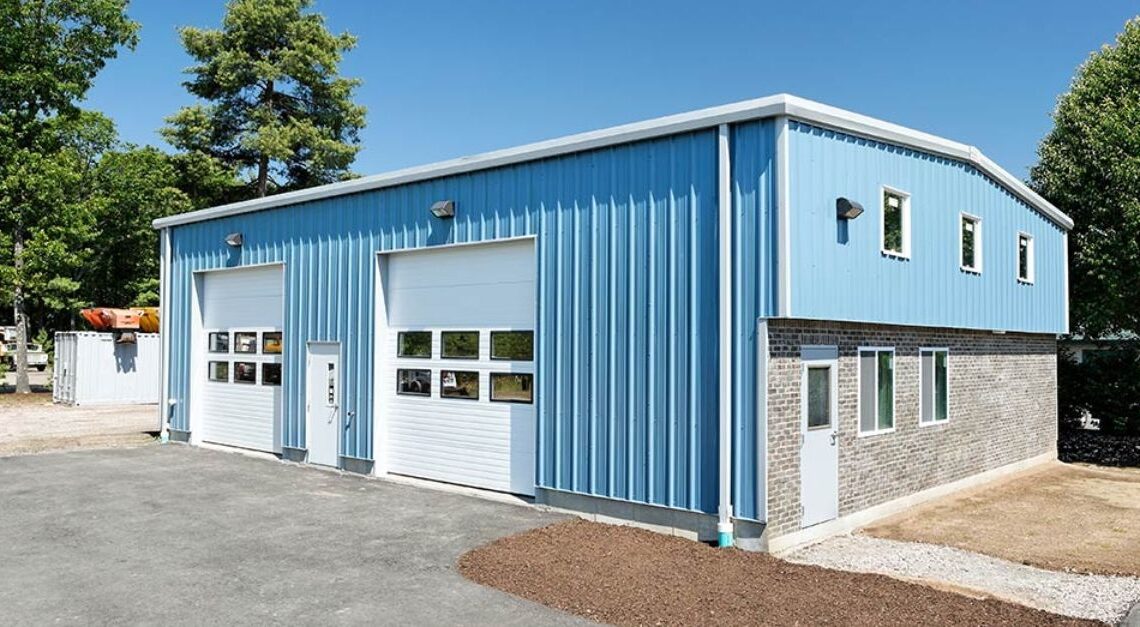Gradually, but surely, the concept of prefab metal garages and workshops has evolved dramatically. From being mere functional spaces, they have transformed to versatile and technically advanced areas.
These now serve the needs of hobbyists, artisans, and DIY enthusiasts. These structures, characterized by their modular design and durability, have become an essential addition to properties where individuals seek a dedicated space for their creative and technical pursuits. This article mentions the various intricacies and advantages of prefab metal buildings and workshops. It also emphasizes how they cater to the diverse requirements of hobbyists.
Understanding Prefabricated Metal Structures
These buildings are constructed using high-quality steel or metal components. They are manufactured off-site and then assembled on the property. The prefabrication process ensures precision and efficiency. The result is structures that are not only durable but also highly customizable.
The Versatility of Prefabricated Garages and Workshops
Prefabricated metal garages and workshops offer various technical advantages. That is precisely what makes them an ideal choice for hobbyists. Some of them are:
Durability: The technical superiority of metal construction makes these structures highly resilient. They can withstand harsh weather conditions, and provide long-term protection for valuable tools and equipment.
Customization: You can now customize prefab designs with advanced technology. Choose any size, layout, and interiors to suit your preferences. This technical flexibility ensures that hobbyists can create spaces that cater precisely to their needs.
Quick Assembly: The technical efficiency of prefab structures results in faster construction times compared to traditional building methods. Hobbyists can have their garages or workshops up and running in a fraction of the time.
Energy Efficiency: Many prefab metal structures incorporate advanced insulation and ventilation systems, providing an energy-efficient environment for year-round use. Technical enhancements in insulation materials contribute to temperature control and energy savings.
Low Maintenance: Prefabricated metal structures require minimal technical maintenance. Their resistance to pests, rot, and decay means less time and effort spent on repairs and upkeep.
Technical Aspects of Design and Construction
When planning and constructing a prefab metal garage or workshop, several technical considerations come into play:
Foundation: The foundation of a prefab structure is critical to its stability and longevity. It typically involves a concrete slab or piers engineered to support the structure’s weight and resist settling or shifting.
Structural Integrity: The design of the building’s frame and support structure is engineered to meet local building codes and withstand various loads, including snow, wind, and seismic forces.
Roofing and Siding: Prefabricated metal structures often feature steel roofing and siding, chosen for their properties such as weather resistance, durability, and fire resistance.
Insulation: Advancements in insulation materials allow for superior temperature control within the structure. Proper insulation is essential for maintaining a comfortable and efficient workspace.
Electrical and Plumbing: Depending on the intended use, hobbyists may require provisions for electrical outlets, lighting, and plumbing. These systems must be designed and installed to code.
Interior Layout: The design of the interior space should be carefully planned to accommodate tools, equipment, workstations, storage, and any specialized requirements of the hobby or trade.
In conclusion, prefab metal buildings and workshops represent an evolution in residential construction. They provide hobbyists with versatile, durable, and customizable spaces for their creative and technical pursuits.
The intricacies of their design and construction ensure that these structures meet the specific needs of each hobbyist. They are energy efficient, require low maintenance, and have a high degree of customization.





